UAE schools are empowering students to be future-ready
How top educators are steering their schools through the times of change
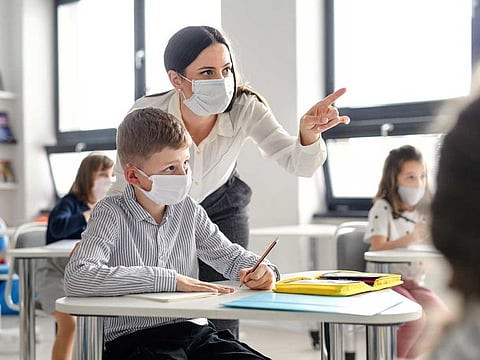
"We involve pupils in self and school improvement programmes”

What aspects of education adopted during the pandemic have a lasting legacy?
Online education is here to stay, albeit assessments will get more organised and better proctored. Technological advancement in education has been catalysed and will show its effect. Learning apps and websites have revolutionised learning and they will continue to do so. This will improve accessibility to education. Quality learning experiences and opportunities will no longer be restricted.
What are some of the challenges of preparing students for the real world? How do you do it at GIIS?
It’s a process — it’s about getting them equipped with all the necessary learning skills. Adaptability, flexibility and the 4Cs - communication, collaboration, critical thinking, and creativity - are the crucial skills to develop, along with problem-solving.
At GIIS Dubai, we involve pupils in self and school improvement programmes such as quality circle and Kaizen, which specifically aims at solving the problems they face in school and in their own lives. It also gives them an opportunity to collaborate and compete with peers globally through the Global Student Summit and Exchange programmes.
The Global Centre for Innovation & Entrepreneurship collaborates with the subjects they learn at school to nurture and enhance their skills. The co-scholastic branch of the school explores and develops their skills in music, art, dance and theatre. It’s a balanced, broad curriculum, which is dynamic and well implemented by trained staff.
"Our social and emotional programme is paying off during Covid-19”

How is your school navigating the challenges of contemporary education, including the lasting trends sparked by Covid-19?
As a Head of School or Superintendent, it is very easy to get stuck in your office and just deal with the administrivia of leading a school. In my over 30 years of being a principal, I have always made time every morning to be out front greeting students, staff, and parents as they arrive. Also, at least once every day, I will wander around the school, stop in to classes, step into the art studios or maker space, get to a game or a rehearsal. You get to know your school by seeing it in action and getting to know your students and teachers. There are many other things to do as a school leader, and there are many distractions, but being present and knowing your school is my highest priority.
The American School of Dubai has a distinguished academic programme, outstanding teachers, excellent athletics, and a wonderful arts programme, but what we have really been working on in the past few years and what is paying off during Covid-19 is our social and emotional programme. We have dedicated counsellors in all divisions who really get to know their students and who have really had to step up during these isolating times to help students to maintain a positive mindset, and keep them going. This is a difficult time to be a student. Students are missing social contact, school activities, and now they are not even able to connect with other students at recess or in PE classes.
Our counsellors help to keep all our students connected to a caring adult at school. Despite Covid, at least before the winter break, ASD was doing a great job of creating a sense of school community. Our rallying cry this year has been reconnect, and we were doing very well with that.
Within KHDA guidelines, we were able to bring faculty and staff together, we were able to have student assemblies again, put on a high school musical with live audiences, have parents back on campus for athletic contests, and we even hosted an outdoor concert with 800 students and parents, all masked and distanced. We loved being together again and recreating our sense of school community. That is a distant memory now, but hopefully, if we can get past Omicron, there will be more community building possibilities before the end of the year.
"Pandemic has taught us the value of face to face interactions”

The pandemic has uncovered plenty of opportunities for new and ingenious ways of learning. What are the key lessons the education sector can learn from the coronavirus crisis?
The key lesson that the pandemic has taught us is the value of face to face interactions and teaching and this should be valued above all other teaching styles. We are in a privileged position to educate future generations, and the quality of interactions and time with children in classrooms are so valuable.
That being said, teachers and educators have had to upskill their use of technology to ensure that, in cases where face to face learning is not achievable, the momentum and the quality of teaching and learning is maintained.
Today’s teachers need a different set of skills than their predecessors, while students have to adapt to a new world of learning. How has your school adapted its pedagogical models to stay relevant in the post-pandemic world?
Dove Green has had to adapt the platforms it uses in class to ensure that work is stored and shared electronically, when a class flips to distance learning. This has involved training and upskilling teachers to ensure that they use these models effectively. All teachers who have the vocation of teaching started their professional journeys with the intention of making a difference to children in their class with a face-to-face model. In a short span of time, they have had to learn to use technology, teach remotely and even teach a class with a number of children studying from home. Teachers have had to be resourceful, resilient and open-minded about different teaching methods and ways of getting the best out of their learners.
"Online learning has increased retention of information”
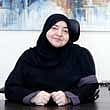
How has your school adapted its pedagogical models to stay relevant amid the pandemic?
For the American School of Creative Science, teaching changed dramatically with the distinctive rise of e-learning, whereby teaching is undertaken remotely and on digital platforms. We have noticed that online learning has increased retention of information, and its frequency, meaning the changes caused might be here to stay.
With industries changing so fast, how do you adapt your curriculum to ensure students will be ready to add value to the professional world in the future?
We had realised early on, teaching with the perspective that the world is and would continue to remain static, would be of no relevance. We had to give students as much control of their learning as possible and adapt the variables of quantity, input, level of support, output, difficulty, and participation, as well as alternative goals.
"We have tried to keep our teaching and learning as normal as possible”
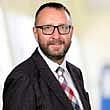
How is your school navigating the challenges of the contemporary education landscape in the UAE – including the long-lasting trends sparked by Covid?
At The Aquila School, we firmly believe that nothing can replicate the experience of learning face to face in school. Keeping this in mind, while we strictly follow all the necessary Covid rules to keep our community safe, we have endeavoured to keep our teaching and learning as normal as possible. Throughout all our year groups, we have active and engaging learning happening, with lessons that are fun and relevant to our community, giving them the skills, knowledge and attitudes needed to make them successful in their lives.
What are the specific challenges ahead of the education sector in a world where humans and robots work side by side, where digital is the new normal and where jobs might well be in the metaverse? How do these challenges affect teaching and learning in schools?
As technology advances to a world where human-robot interaction is seamless, the skills our pupils will need are already present and are already being developed through our curriculum. Communication, collaboration and cooperation will be as fundamental to the roles of the future as they are now. Working in the metaverse may replace office spaces and make commuting redundant, but whether in a real world or a virtual one, our pupils will need to be clear, concise and consistent and will need to have the confidence to speak up and speak out. At The Aquila School, these are the skills and qualities that we are already focused on developing through activities both inside and outside of the classroom.
"We have identified the importance of community”
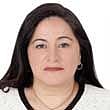
How do you adapt your curriculum to ensure students are ready to add value to the professional world in the future?
We follow The Creative Curriculum and the whole child approach to learning, providing children with the foundations and skills to carry forward into their education journey and later in their professional life. Our curriculum continues to be reviewed and moulded to reflect the needs of all children as individuals, enabling us to provide early year’s education which embraces diversity and inclusion.
What are your takeaways from the pandemic? How will the education landscape change in the UAE in the next 10 years?
We have identified the importance of community and believe this will shape the education landscape in the UAE in the next 10 years, reflecting the importance of parent interactions and family involvement, and supporting the emotional well-being of both children and families. The use of technology while supporting children and families during this time of crisis has also highlighted the need to prepare children for the growing use of technology moving forward.
"Students learn how to learn and develop transferable skills”

Preparation for careers needs to start as early as elementary school. How do you prepare learners for the careers of tomorrow?
At Fairgreen, we provide our students with authentic, innovative, real life experiences that allow them to develop their essential skills. We help them to engage and solve problems in unfamiliar situations where they need to apply their skills and show deeper levels of thinking. As an IB school, the Approaches to Learning (ATL) skills are fostered from a very early age all the way through to graduation from secondary school. These are designed so students learn how to learn and develop transferable skills that will be valuable as they start their future careers. They allow students to develop as self-regulated learners, able to set and meet learning goals, generate motivation, self-interrogate, show perseverance, be resilient and reflect on their achievements.
What are the various pedagogical approaches you implement to enhance student learning and engagement?
Teaching at Fairgreen is based on enquiry where students are encouraged to construct their own understanding through a transdisciplinary approach. Students have the opportunity to make real life connections that are authentic and meaningful. Sustainability is one of our central pillars and Care for Self, Care for Others and Care for the Planet are attitudes interwoven into the learning experiences. Learning is also linked to local and global contexts and our students are able to process new information by connecting it to their own experiences and to the world around them.
"We are focused on developing the skills students need to be successful”

Students will enter a new era of working in terms of changed working environments. How do you prepare students for real-life scenarios?
We always knew that we are educating the students of today for jobs of the future that may not even exist yet, but the changes that the world has seen due to the pandemic — such as online learning and working from home — mean that we are focused on this more than ever. Our world has shifted and that means that the jobs of the future and what is required for them, has evolved even more. At Nibras International School, along with ensuring that we are delivering a high-quality education to our students, we are focused on developing the skills they need to be successful and become leaders in whatever jobs they decide to take on in the future. They are encouraged to follow our TORCH values of being tolerant, organised, respectful, caring and honest.
What is that one thing your school has done differently in the past one year that you are truly proud of?
With the UAE hosting the Expo 2020, we have been able to get our students involved in the event this year. We wanted every Nibras International School to experience the wonders of Expo 2020, and our school trips have been successful with every age groups. These trips have conditioned our students to think more like innovators, inventors, and forward-thinking individuals. These are also skills that they need to hone as they move into an exciting, unknown but promising future.
"We used an all-round concerted approach to strengthen the universal foundation”
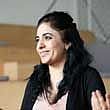
How is your school navigating the challenges of the contemporary education landscape in the UAE – including the long-lasting trends sparked by Covid?
March 2020 saw all the educators, students and their families falling abruptly into a deep learning pit which also turned out to be a major learning curve for most of us. Within the next quarter, we found ourselves grappling with the wide learning gaps – in the form of lost learning, missed learning, rusty learning, and shaky learning – amongst majority of our learners.
To address these gaps, we used an all-round concerted approach to strengthen the universal foundation skills of all our students. Braced with resilience and agility, we could soon find ourselves getting out of the pit and reaching our ‘eureka’ moment gradually.
What are the specific challenges ahead of the education sector in a world where humans and robots work side by side and where digital is the new normal? How do these challenges affect teaching and learning in schools?
Pandemic has made us realise that with every crisis emerges deeper insights and diverse opportunities of transformation. For instance, we all know that this generation of students has access to more content than any other generation. We just need to now reinvent our teaching and learning experiences keeping in mind that ed-tech is as essential as hygiene in the contemporary education landscape. Blended learning is here to stay; so better accept it and get better at it.
Surprisingly, some of the extraordinary practices that originated at our campus during this period — SIS Expothon Challenge for middle schoolers, Grade 4 initiated Virtual Auction of their art works, and online student-led presentations for parents at the end of each term — have been some of the events that we could never come up with, had we been comfortably nestled in our pre pandemic cocoon.


